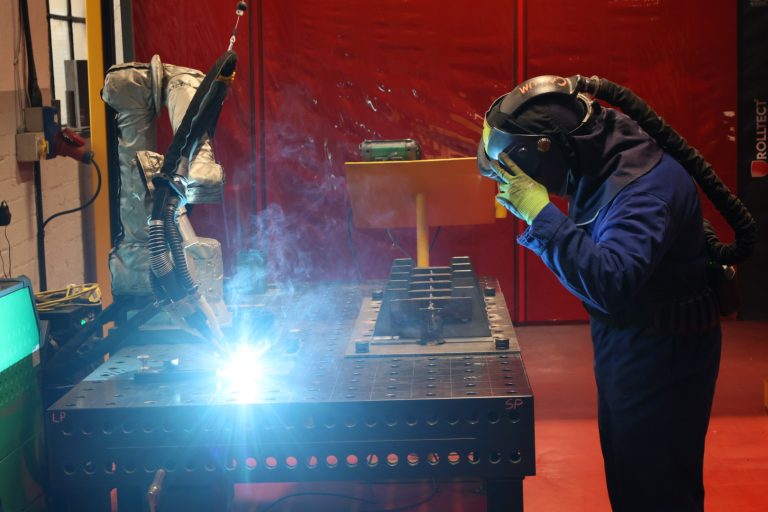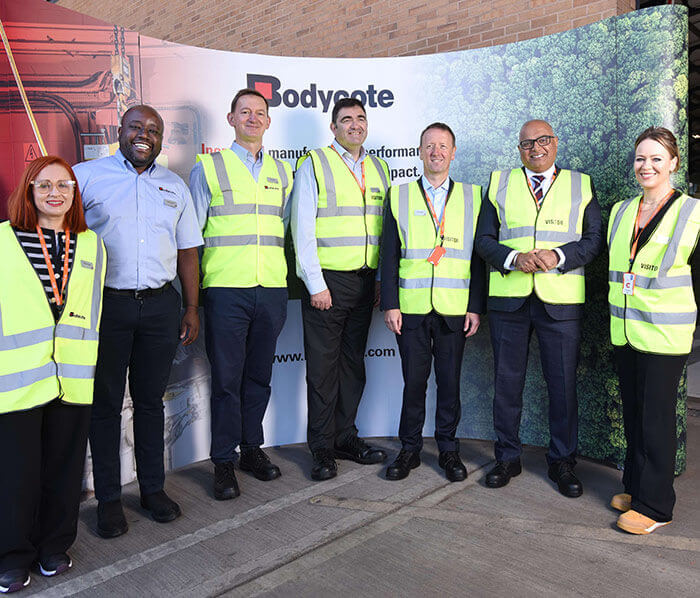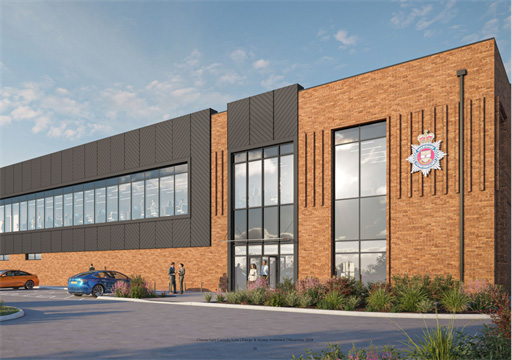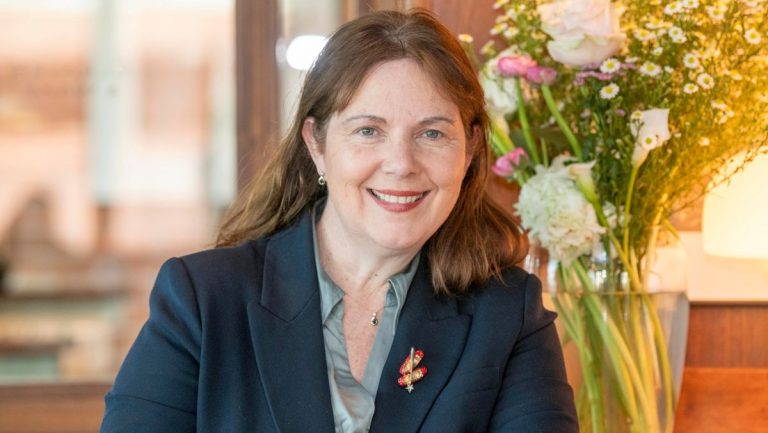Nottingham engineering business expands training academy to mark 20 years of operation
Running trio raise almost £3,000 for Northamptonshire Mind
Gedling council approves next steps for Carlton leisure centre
Gedling Borough Council has approved further feasibility work for a new multi-use leisure centre in Carlton, moving the Carlton Active project closer to realisation. The facility is planned for the site of the existing Richard Herrod Centre and will replace both that centre and Carlton Forum Leisure Centre. The Carlton Forum site will remain operational until the new centre opens.
A public consultation in May drew responses from over 1,400 residents, with strong support for the development. Proposed features include an 8-lane swimming pool with a teaching pool, a 100-station gym with an assisted exercise suite, studios, community rooms, a café, and a soft play centre. Indoor bowls is not included due to high projected costs, though the council will work with Gedling Indoor Bowls Club on alternative arrangements.
The decision follows a strategic review of leisure facilities across Gedling, which recommended new centres in Carlton and Arnold to accommodate population growth, modernise ageing infrastructure, reduce council expenditure, generate income, and lower carbon emissions. Plans for a new Arnold facility will be addressed separately.
The wider leisure strategy also involves consulting residents on the future operation of Redhill and Calverton centres, which are not council-owned. Any withdrawal from their management would trigger discussions with local partners to secure ongoing service provision.
Cabinet members approved the Carlton Active project proposals on 25 September, endorsing the next steps toward detailed planning and further feasibility assessment.
East Midlands businesses face declining sales and rising undercapacity
Recent research from the East Midlands Chamber highlights a continued slowdown in trading conditions across the region. Data collected from nearly 300 businesses for the third quarter of 2025 shows that both domestic and international sales have fallen, and a growing proportion of companies are operating below full capacity.
UK sales declined by 3%, while domestic orders dropped 1%. Overseas sales fell 1%, and export orders decreased by 2%. Eight in ten businesses reported operating below capacity, up from seven in ten at the end of 2024.
Pressure to increase prices has eased. Only three in ten firms expect to raise prices in the next three months, a slight decline compared with earlier quarters. Recruitment activity remains steady, with 47% of companies seeking new staff. Around 70% anticipate workforce numbers will remain unchanged, and six in ten firms continue to report challenges finding suitable candidates.
Business confidence shows marginal improvement. Four in ten firms expect profitability to rise over the next 12 months, while half predict higher turnover. Despite this, inflation, corporate taxation, and competition remain the top concerns for regional businesses.
The survey underscores the ongoing pressures on East Midlands firms as they manage rising costs, fluctuating demand, and talent shortages, while preparing for potential policy changes in the upcoming Autumn Budget.
Bodycote achieves zero-emission operations at UK plants
Bodycote has achieved zero operational carbon emissions at its Derby and Rotherham facilities, marking a significant milestone in industrial decarbonization for the heat treatment sector. Both plants, which focus on heat treating turbine blades for Rolls-Royce engines, now operate fully on renewable electricity and no longer rely on fossil fuels. The transition has been completed without carbon offsetting.
The move positions Bodycote as the first major heat treatment provider to demonstrate near-term, measurable carbon reduction across critical manufacturing processes. The company’s global network, spanning over 100 sites, is pursuing energy efficiency improvements, electrification, on-site renewable energy, nitrogen gas generation, hydrogen electrolysis, and green methanol sourcing.
Innovations at the Derby site include a closed-circuit adiabatic cooling system that reduces electricity use by 73%, lowers water consumption by more than 85%, and eliminates chemical cleaning requirements. The facilities now serve as blueprint sites for a broader global decarbonisation programme, with further zero-emission sites expected to be announced.
Bodycote reports that energy intensity across its operations has dropped 27% since 2019, while associated carbon emissions have fallen by 29%. The company aims to achieve a 46% reduction in operational emissions by 2030. Customers can access lower-carbon heat treatment services without increased costs, extended lead times, or reduced capacity, with process emissions reductions of up to 60% demonstrated in specific scenarios.
The initiative aligns with UK industrial decarbonisation priorities, supporting regional low-carbon manufacturing networks and national climate targets.
Revenue and profits rise at Microlise Group
Recurring revenues, meanwhile, grew 11% to £29.5m and pre-tax profit increased to £1.9m from £0.3m.
The firm welcomed several major, multi-year, new contract wins including Müller UK and Ireland, Greene King, as well as Geraldton Fishermen’s Co-Operative (Brolos) in Australia.
Several major multi-year renewals were also secured, with increased revenues, including Maritime, Schenk UK Ltd and City Plumbing Supplies.
Nadeem Raza, CEO of Microlise, said: “Looking ahead, we remain encouraged by our progress and momentum. While we are mindful of broader market challenges, including a slower recovery in the automotive sector, our refreshed go-to-market strategy, healthy order book, and expanding product suite give us confidence in our ability to deliver disciplined, profitable growth. I’d like to thank the entire Microlise team for their continued hard work and commitment.”
Time Out: Zeynep Guzelkasap, Operations Director at Acorn Safety Services
Willmott Dixon wins £30.5m Chesterfield custody suite contract
Willmott Dixon has been awarded a £30.5m contract to construct a new custody suite for Derbyshire Constabulary in Chesterfield. The project covers a 4,732 m², three-storey facility on Dunston Road, featuring 36 cells, support accommodation, car parking, drainage, and site-wide ground improvements. The building will include photovoltaic panels and is designed by Corstorphine & Wright Ltd.
The contract was procured via the SCAPE Construction framework. Work is scheduled to start in September 2025 and finish by June 2027.
This project reinforces Willmott Dixon’s expertise in law enforcement and emergency services infrastructure. The company has delivered custody suites and headquarters for forces including West Midlands, Newcastle, South Yorkshire, South Wales, Merseyside, Hertfordshire, and Lancashire. Other relevant projects include custodial expansions at HMP Nottingham, HMP Swaleside, and HMP Lindholme, as well as a new forensics centre for Thames Valley Police, fire facilities for West Sussex Fire & Rescue Service, and headquarters buildings for Dorset and Humberside Police.
Willmott Dixon maintains full security vetting and confidentiality across all sensitive projects, focusing on operational efficiency, officer support, and long-term cost reductions in public safety infrastructure.
Nottinghamshire and Derbyshire communities to benefit from share of £5bn Pride in Place investment
East Midlands Freeport creates over 850 jobs with £150m investment
The East Midlands Freeport has generated 862 jobs across distribution and transport companies at East Midlands Airport and its surrounding industrial cluster. The initiative forms part of a wider £9 billion project aimed at creating 28,000 roles over six years.
The freeport covers three key sites: Castle Donington airport, Ratcliffe-on-Soar power station, and a rail-linked business park next to Toyota’s Derbyshire plant. Companies operating within the East Midlands Gateway tax zone, including Maersk, CEVA, and Maritime Transport, have benefited from the freeport’s incentives.
Investment in the sites has reached £150 million since the project began in March 2023. The freeport provides business support measures such as business rates relief, Employer National Insurance contributions relief, and Stamp Duty Land Tax relief to attract investment.
The initiative is structured as a non-profit partnership between local authorities, landowners, and private sector organisations. Its focus is to develop globally competitive hubs in advanced manufacturing, logistics, and low-carbon energy while driving economic growth across the East Midlands.












